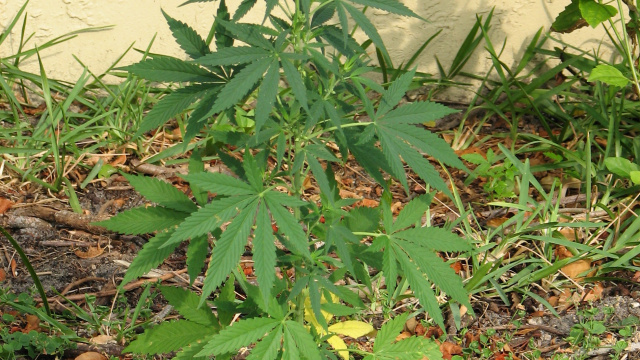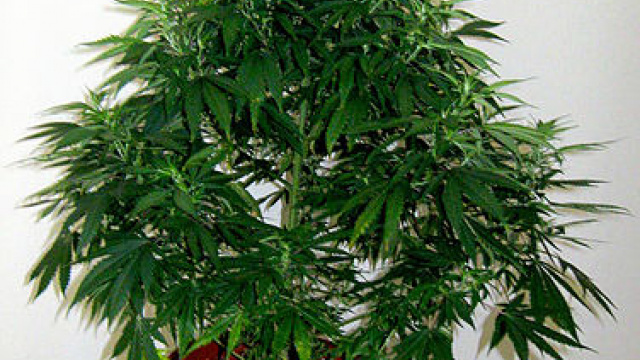 Jay Lassiter, a onetime New Jersey politics blogger who would use profanity to drive home a point, texted one word to describe his feelings about becoming one of the state’s first patients eligible to smoke medical marijuana: “Wow.”
Jay Lassiter, a onetime New Jersey politics blogger who would use profanity to drive home a point, texted one word to describe his feelings about becoming one of the state’s first patients eligible to smoke medical marijuana: “Wow.”
“Just registered. . . . Shouldn’t be long now,” the advocacy consultant from Cherry Hill then told his Facebook followers. Lassiter is among the more than 100 people who signed up last month as the state’s long-stalled medical marijuana program advanced.
Lassiter, 40, who previously wrote for the liberal website BlueJersey, wants to obtain marijuana to stimulate an appetite ravaged by HIV/AIDS and the side effects of a cocktail of potent medications. The drug requires a prescription from a registered doctor.
Whether the patient registry is “the sweet victory” Lassiter anticipates or just another step in the program’s bumpy road remains to be seen. There are still hurdles and confusion as the state Department of Health takes a firm stance in checking and double-checking every detail.
No marijuana dispensary has received final approval to open for business, despite years of planning and review. So far, only one – the Greenleaf Compassion Center in Montclair, Essex County – has been licensed to grow the crop.
Greenleaf is expected to begin selling the drug to patients this month “assuming they meet all the criteria,” Health Commissioner Mary O’Dowd said.
But the government and dispensary seem to have a different understanding about what’s left to be done before Greenleaf opens.
Greenleaf chief executive officer Joe Stevens said his nonprofit company already had harvested the crop and was ready to sell as early as this week, once the state conducts a final inspection of his storefront dispensary and reviewed his security plans. State Health and Agriculture Department inspectors already have checked the plants for mold, pesticides, and other contaminants and found them to be clean, he said.
“Now that patients are registering, we’ve been getting calls as to our opening date. . . . We’re hoping for the first or second week in September,” Stevens said.
But O’Dowd said the inspection of the plants was only preliminary. The marijuana still needs to undergo further inspection and laboratory testing before it can be sold, she said.
Plus, a daylong inspection of the dispensary would include computer and employee training and security checks. “We are asking for security to make sure [marijuana] is not diverted for inappropriate illegal purposes,” O’Dowd said.
Some patients have vulnerable immune systems, she said, and the Department of Health needs to ensure that the drug won’t harm them.
So far, more than 100 patients who have cancer, Crohn’s disease, multiple sclerosis, HIV, or other afflictions that qualify for marijuana treatment have begun the registration process. About 8,400 people visited the state’s medical marijuana website the day patients were allowed to sign up.
Stevens said he had cultivated enough marijuana at his 5,000-square-foot facility to serve only 60 patients the first month. Since more than 100 people have registered, he said, he may ask patients to “limit their purchases in the beginning so that everyone who is sick can get their medication.”
Stevens, a former funeral director who will run the dispensary with a childhood friend, Julio Valentin Jr., a former Newark police detective, said he did not expect to have the only dispensary to open in the state.
In March 2011, the Department of Health selected six nonprofit companies to grow marijuana and operate dispensaries, two for each of three geographic areas. The others have been stymied either by local opposition to their businesses or the rigorous state approval process.
Until the others open, registered patients across the state are free to travel to Greenleaf.
Stevens said his company initially had difficulties because “the start dates kept being pushed back” by the state, but now, “if there were differences in the past, there are none now.”
Compassionate Care Foundation, one of two dispensaries chosen to serve South Jersey, has been paying $25,000 a month in rent on a vacant warehouse in Egg Harbor, near Atlantic City, since April.
Chief executive officer William J. Thomas said he did not anticipate that the state background checks of his board members and lenders would take eight months. He had hoped to be ready to serve patients this month, but since the investigations are continuing, he now expects to see a December opening at the earliest.
“We are being held to the same standard as a casino owner,” he said, noting that investigators had asked his associates, doctors, and lenders for three years’ worth of IRS statements, bank accounts, mortgage information, and job history, and for personal interviews.
“We have no revenue, and if it goes on any longer, we’ll just have to walk away from this,” Thomas said.
Some lenders have dropped out because the process is so time-consuming and intrusive, he said.
“We are being treated like a hot potato,” he said.
Thomas said he could not apply for a permit to begin growing until the investigation was complete. Cultivation then takes about three months.
O’Dowd said that Department of Health conducts in-depth investigations to make sure no one associated with a dispensary has laundered money, has ties to organized crime, or has a criminal record.
“This is an illegal operation in the eyes of the federal government, so we want to make sure there are no concerns that would bring into question the integrity of the investors and the board as a whole,” she said.
In other states, notably California, federal agents have raided dispensaries when they discovered the improper sale of medical marijuana to people who were not sick. O’Dowd said she wanted to ensure that New Jersey’s program “will withstand the scrutiny of federal law enforcement.”
New Jersey is one of 17 states and the District of Columbia that permit medical marijuana despite the federal government’s ban on cannabis sales. The Obama administration has issued memos saying it will look the other way when dispensaries follow a state’s regulations.
Ken Wolski, who heads the Coalition for Medical Marijuana New Jersey, a patient advocacy group, said New Jersey’s program was unnecessarily the strictest in the nation, depriving very sick and terminally ill patients of a drug that could help them cope.
The program has focused more on bureaucratic requirements and less on the suffering of the patients, he said.
Gov. Christie has said that he wants to make sure there are “sufficient legal safeguards so we don’t turn into California and everybody with a headache is going out and getting high.”
Lassiter said that was not why he needed marijuana. “A big part of my strategy for staying well is keeping my appetite robust,” he said. “The alternative is dying.”
Source: Philadelphia Inquirer, The (PA)
Author: Jan Hefler, Inquirer Staff Writer
Published: September 4, 2012
Copyright: 2012 Philadelphia Newspapers Inc.
Contact: [email protected]
Website: http://www.philly.com/mld/inquirer/



Leave a Reply